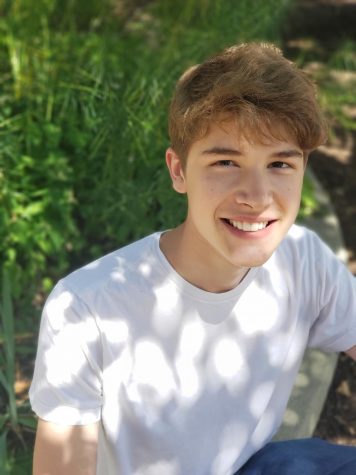Turning off the lights
The benefits and risks of setting time aside for a nap
Photo by and used with permission of Zohre Nemati
Napping can be an effective way to relax, improve wellness, and catch up on some sleep. There are two kinds of naps: the “accidental nap” (displayed here) and the “intentional nap”, Elizabeth Garcia, health teacher says.
While a lot of research has shown napping to be beneficial for mood and overall wellness, not every nap is a good one.
Students should beware of napping for too long, as they risk “wasting a lot of time, which can come back to bite you,” Cassidy Paradise, LZ alumni, says. In fact, Paradise says she recalls a time when napping truly did ruin her entire day.
“I just remember I was up until 3 am the night before, scrambling to get all of my homework done,” Paradise said. “The next day I woke up around 8 am and ended up falling asleep at 2 pm, thinking I would be alright. I was wrong. One minute I was resting my eyes for a bit on my bed, and suddenly I woke up at eight o’clock at night, and I just felt a sudden rush of guilt: I missed my entire shift at work. That’s when I realized napping might not be a good strategy for me.”
Stories like Paradise’s are those of the “accidental napper”, which, according to Elizabeth Garcia, health teacher, is one of two types. The first is much more unexpected, while the second tends to be more scheduled.
“The accidental nap is where you’re drifting off, either you’re watching a show, or trying to read something, maybe you have a book propped up in front of you. Maybe you’re driving,” Garcia said. “If you start to drift off at that point, it’s probably better that you sleep [except for when you’re driving] because you know you’re needing that break. It’s kind of your body’s way of telling you you’re ready to sleep. The other kind of nap is much more intentional. That’s where people go to a dark room, play some quiet music or something or just take themselves out of their day, and allow themselves to sleep.”
Napping, whether accidental or intentional, depends on the amount of sleep the person gets the night before, Garcia says. While napping may not make up for poor quality of sleep entirely, “taking a power nap can help in certain situations where you could give into something less healthy. [Lack of sleep] shows up during the day in ways like losing your temper, or having trouble concentrating. But instead of eating more than you need to, or taking a dose of caffeine and forgetting you’re tired, a power nap could be the way to go.”
Taking a power nap seems to show immediate benefits for busy students like Mickey Holub, senior, who says that napping will always hold an important place in his schedule. Whether his day consists of regular school and activities or e-learning, Holub says he always tries to take a nap toward the middle of the day.
“I usually nap now either after I finish e-learning, or on weekends after I run in the morning,” Holub said. “Taking naps helps me after my run because I wake up early in the mornings and lose a good amount of [sleep]. It just helps me throughout the rest of the day, too, and really refills my energy.”
Holub is not the only one feeling these benefits, since napping can “restore alertness, enhance performance, and reduce mistakes and accidents,” the Sleep Foundation says. “A study at NASA on sleepy military pilots and astronauts found that a 40-minute nap improved performance by 34% and alertness 100%.”
Napping can benefit anyone from NASA pilots to everyday students, but the napping has to be done right, Garcia says. Taking naps that are too long can actually cause a variety of problems, says Garcia.
“The downside is if you sleep for too long, and I think that really the maximum is probably about 20 or 25 minutes, you’re going to have some deep sleep, and that’s going to disrupt your nighttime sleep,” Garcia said. “So, as a rule, I kind of recommend to people it’s better if you limit your napping and maybe have people help you wake up or set alarms so that you don’t throw off your rhythm too much. You [don’t want to waste] a large chunk of the afternoon [because of a nap].”

As a senior, this is Max’s third year on staff and first year as magazine editor in chief for the Bear Facts program. He aspires to study environmental...

